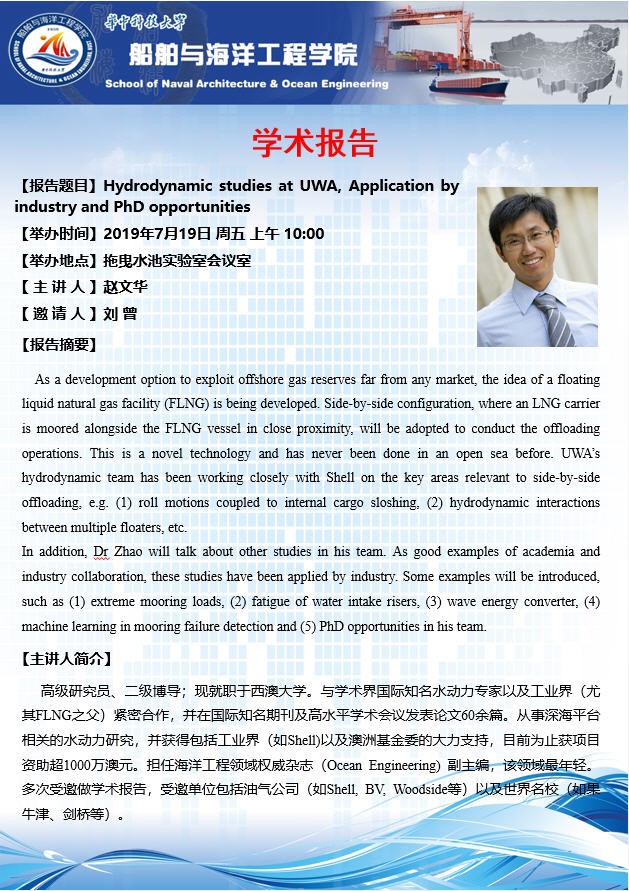
On July 19, 2019, Zhao Wenhua, senior researcher of the department of engineering and mathematical sciences from University of Western Australia, was invited by Liu Zeng to come to our institute for academic exchange visit, and gave the academic report—"Hydrodynamic studies at UWA, Collaboration with industry and PhD opportunities". The teachers and students of Sun Jianglong and Yao Chaobang group, participated in this report, which was presided over by Liu Zeng.
Zhao Wenhua has been working at the University of Western Australia since 2013. He has worked closely with internationally renowned hydrodynamic experts in academia and industry (especially the father of FLNG), and has published more than 60 papers in internationally renowned journals and high-level academic conferences. He is mainly engaged in research on hydrodynamics related to deep sea platforms and has received strong support from industry (such as Shell) and the Australian Fund Committee, the projects funded so far have accumulated over 10 million Australian dollars. He is the associate editor of Ocean Engineering and have been invited to give reports and exchanges to oil and gas companies (such as Shell, BV, Woodside, etc.) and world-famous universities (such as Oxford and Cambridge, etc.) for many times.
With the large-scale development trend of floating offshore facility and floating liquid natural gas facility, the analysis of the extreme mooring load of floating structure, the narrow water resonance between the floating bodies arranged side by side and the coupling of the hull rolling and the tank sloshing have caused more and more attention. Taking the narrow water resonance between the floating bodies arranged side by side as an example, Dr Zhao gave a detailed introduction to the research progress of his team in this field. The resonance mechanism of the narrow waters was analyzed by model test and CFD numerical simulation and the viscous damping coefficients of the existing potential flow software were compared and evaluated in combination with DNV, BV and LR. In addition, Dr Zhao introduced the research progress of his team in the forecast of extreme mooring loads, fatigue of water intake risers, wave energy converter development and new concept deep sea shuttle, and briefly introduced the enrollment situation of the research group. In the Q&A session, our teachers and students actively asked questions and Dr Zhao had an in-depth exchange of questions with everyone.
After the report, Sun Jianglong and Zhao Wenhua had further discussions and exchanges on the cooperation in teaching and scientific research.

